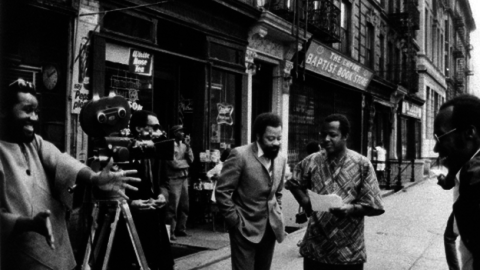By Ashley Clark in the September-October 2017 Issue
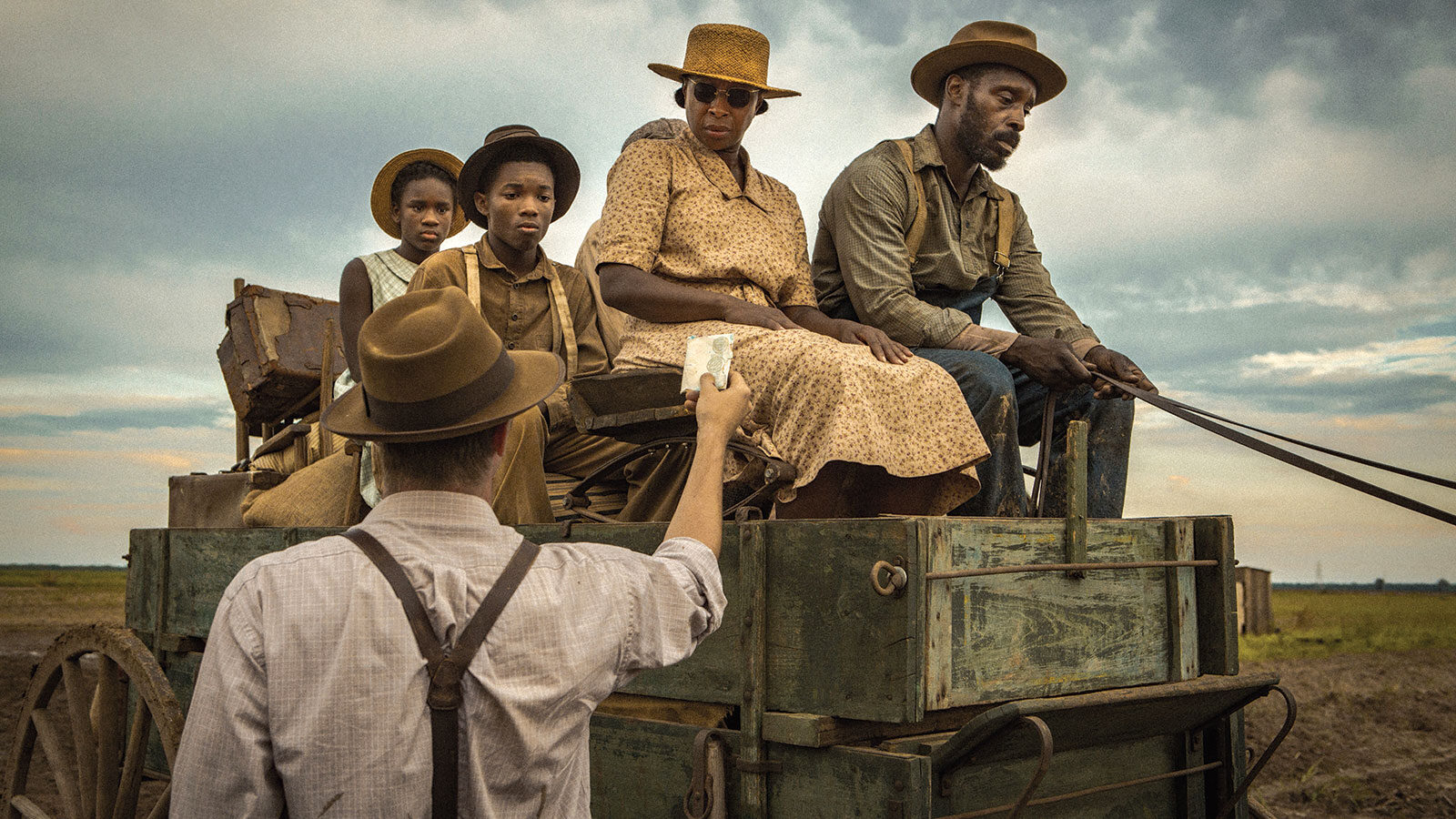
This Is Us
In Mudbound, an ambitious epic about racial realities in the American South during the World war II era, Dee Rees reminds us that we create the times in which we live
The Nashville-born writer and director Dee Rees has come a long way since her early, post–business school jobs as a panty-liner salesperson in Cincinnati and a hawker of wart removers and bunion pads on behalf of Dr. Scholl’s in New York. Rees had always been creative, and on one fateful shoot for a shoe-insole commercial discovered that she enjoyed life on a film set. Soon after, Rees signed up for New York University’s graduate film program, where she would count professor Spike Lee as a mentor, and for whom she would later serve as an intern on Inside Man (2006) and the Hurricane Katrina epic When the Levees Broke (2006). While at NYU, Rees came out as gay to her family, and started writing the semi-autobiographical short Pariah, which would eventually be adapted into her breakthrough feature of the same name.

From the September-October 2017 Issue
Also in this issue
A hushed, Brooklyn-set drama shot in darkly glowing tones by Bradford Young, Pariah (2011) charts the often painful coming-of-age of 17-year-old lesbian Alike (Adepero Oduye). Accomplished and graceful—and a clear forerunner for Barry Jenkins’s Moonlight—Pariah laid the path for Rees’s next feature-length project, which would also take a nuanced look at black female sexuality and intimacy. Made for HBO in 2015, Bessie is an absorbing, handsomely mounted biopic of bisexual blues singer Bessie Smith, anchored by a charismatic lead turn from Queen Latifah. The film won four Emmys, including Outstanding Television Movie.
Rees’s latest feature, Mudbound, represents a significant leap in scope and scale from the determinedly low-key Pariah and the glossy, narratively straightforward Bessie. Adapted by Rees and co-screenwriter Virgil Williams from the 2008 novel by Hillary Jordan, it is a period epic spanning about five years, from America’s 1941 entry into World War II to the immediate postwar era. Shot largely in a Louisiana doubling for the vast, unforgiving landscapes of Mississippi—with occasional depictions of combat and romance on foreign soil—the film revolves around the fraught relationships between, and within, two families: one white, one black.
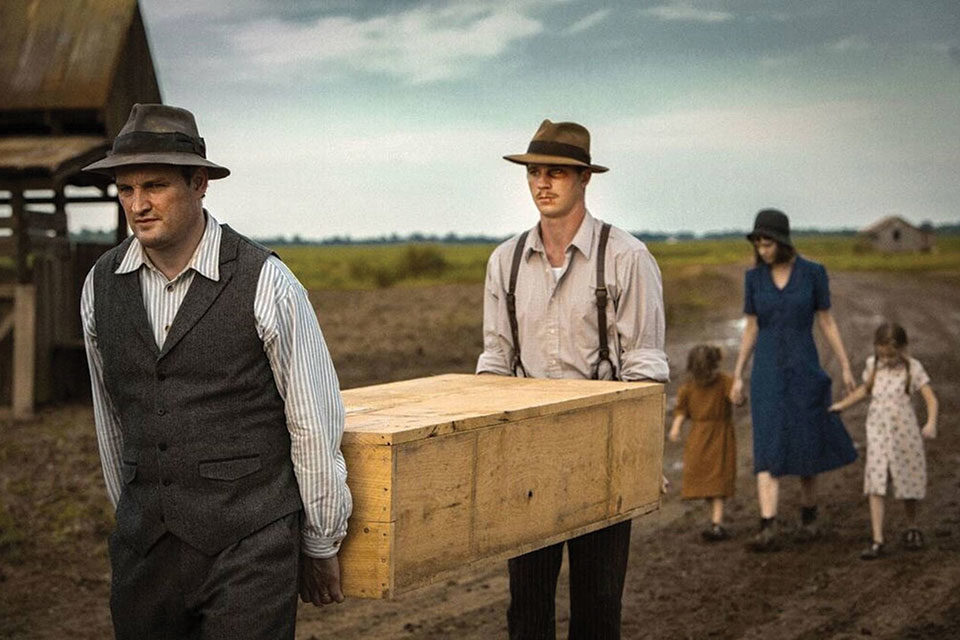
There’s the landowning McAllan clan, comprised of macho patriarch Henry (Jason Clarke), socialite-turned-reluctant-farm-frau Laura (Carey Mulligan), and their children, plus Henry’s gregarious, combat-bound brother Jamie (Garrett Hedlund) and their hideously racist father, “Pappy,” played with dead-eyed rancidity by the bullet-headed Jonathan Banks (best known as cleanup man Mike in Breaking Bad). Their share tenants, who work on the McAllan land and pay rent, are the Jacksons: Hap (Rob Morgan), a preacher and laborer with big dreams; his wife, Florence (Mary J. Blige); and their children. The Jacksons’ eldest son, Ronsel (Straight Outta Compton’s Jason Mitchell, outstanding), is headed for combat with the 761st Tank Battalion, a real-life unit composed primarily of African-American soldiers, who by federal law were forbidden to serve alongside white troops.
Clocking in at a meaty 134 minutes, Mudbound is thrillingly ambitious and complex, and features daring experimental flourishes, including a multicharacter narration that, while initially a touch overbearing, ultimately lends the film an apposite epistolary quality—repressed characters who are physically or emotionally adrift from their families are given voice, to powerful dramatic effect. The film’s immersive first half cycles through multiple perspectives and incidents at a rapid rate, but its more streamlined second half rests to focus on the trials faced by returning heroes Jamie and Ronsel, who form a bond while both afflicted by PTSD. Adulterous sexual tension between Jamie and Laura threatens to boil over, while Ronsel must confront a Jim Crow society hostile to his very existence: “My country hadn’t changed a bit,” he laments in voiceover. Mudbound patiently builds toward a harrowing climax that’s followed by a final, intensely moving note of grace.
So what drew Dee Rees to the material? “Back in 2015, [producer] Cassian Elwes brought the script, originally written by Virgil Williams, to my attention, and I was taken by how the narrative was told from several points of view,” said Rees, speaking to me over the phone from a departure lounge in a London airport in July. “I really wanted to get into the Jackson family, because when we’re with a character [in the script] we’re truly seeing the world through their eyes. That’s what I really wanted to play up. That was one of the exciting things about it for me.” American cinema is hardly overburdened with layered historical narratives told from an African-American perspective, and Rees saw an opportunity to engage with history on a personal level, tracing a line from Ronsel to her own family. “My maternal grandfather was a veteran of World War II and my paternal grandfather went to Korea—so different eras, and different kinds of battles. But I was struck by the fact that they were considered more American when they were overseas than they were in the States. I wanted to get into the theme of the battle abroad versus the battle at home, which was even bloodier.”
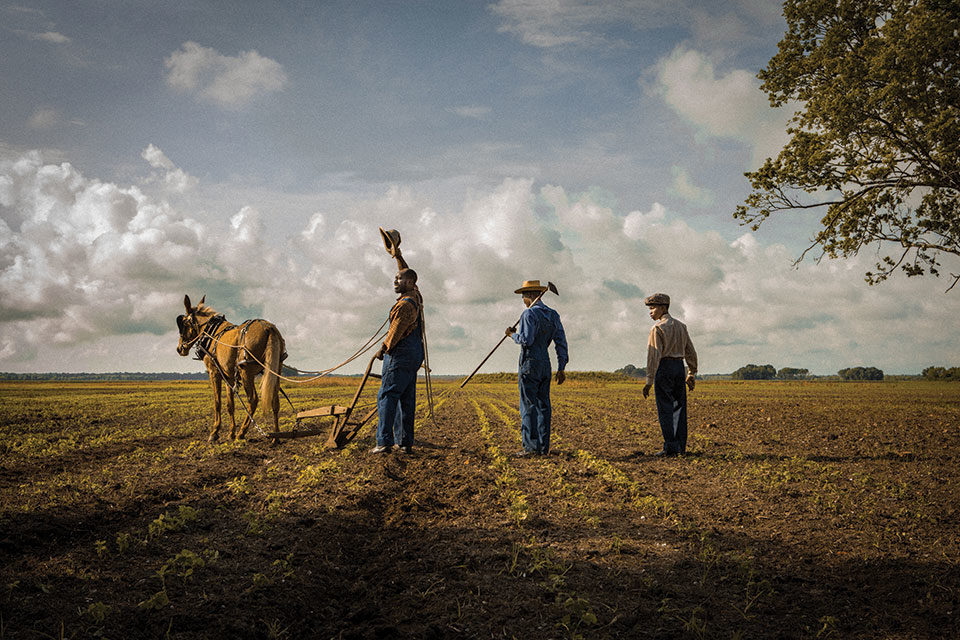
The director plumbed family history for other aspects of the film. I spotted a note in the end credits thanking Rees’s grandmother for her stories. “My grandmother grew up in the small town of Ferriday in Louisiana,” said Rees. “She was born in 1925, and she’d talk about riding on her mother’s cotton sack. They owned their land, but they farmed it, and her parents cultivated cotton. She decided early on that she didn’t want to do that, nor did she want to be a domestic. She said she wanted to be a stenographer, so that was a touch I added in the film, when the Jacksons’ daughter declares her career ambition. In [Hillary Jordan’s] book, she can sing, but I didn’t want it to be the typical ‘little black girl can sing’ thing. I found it more interesting that she had this other ambition.” In 2007, Rees made the short documentary Eventual Salvation about her grandmother, who in 1955 expatriated to Liberia (“She felt like she couldn’t fully be herself in the States”), only to be forced to return to America as an elderly woman when civil war broke out in the African country.
Mudbound is notable for its cast’s shaded, fleshed-out characterizations. Mulligan is particularly impressive, locating a hitherto unseen authority in a role that calls for her to balance dowdiness, steely resolve, and simmering sexuality. Also noteworthy, as the caring and pragmatic Florence, is R&B icon Blige, who is so understated that it took me an hour to realize it was her. “I was so happy that Mary took it on because she has such empathy,” Rees said. “If you listen to her lyrics, she sings such vulnerability and such pain. She has these reserves, and I knew that she could bring them to the character.” According to Rees, Blige and the other big-name performers were game when facing grim-sounding shooting conditions: “It was hot, it was sticky, it was muddy, we were covered in mosquito bites daily. There was no comfort there for the actors.”
There are no clear heroes or villains in Mudbound, aside from the virulently prejudiced Pappy, who waltzes straight into the canon of evil screen fathers alongside John Huston’s Noah Cross in Chinatown and Christopher Walken’s Brad Sr. in At Close Range. Without ever feeling forced or didactic, Rees’s writing engages with questions surrounding a modern hot topic: white privilege. “With the McAllans, I wanted to explore the currency of whiteness—they all have it, it’s just how they spend it,” she says. “Pappy flaunts his. Henry spends his firmly; he believes that the system works and that it’s fair. Laura bargains with hers. She’s always bartering it. Jamie tries to burn his and throw it away, which is a part of his character, yet this kind of reckless spirit is ultimately what endangers Ronsel. All those kinds of things were coming into play, and I was also interested in transgressive relationships, like the one between Jamie and Ronsel, which transgresses a line that cannot be crossed.” Indeed, one comes away from Mudbound pondering the often subtle, structural nature of racism. “One could argue that Henry is more dangerous than Pappy, because economically he’s still actively participating in a system that has deep future implications for America,” said Rees.
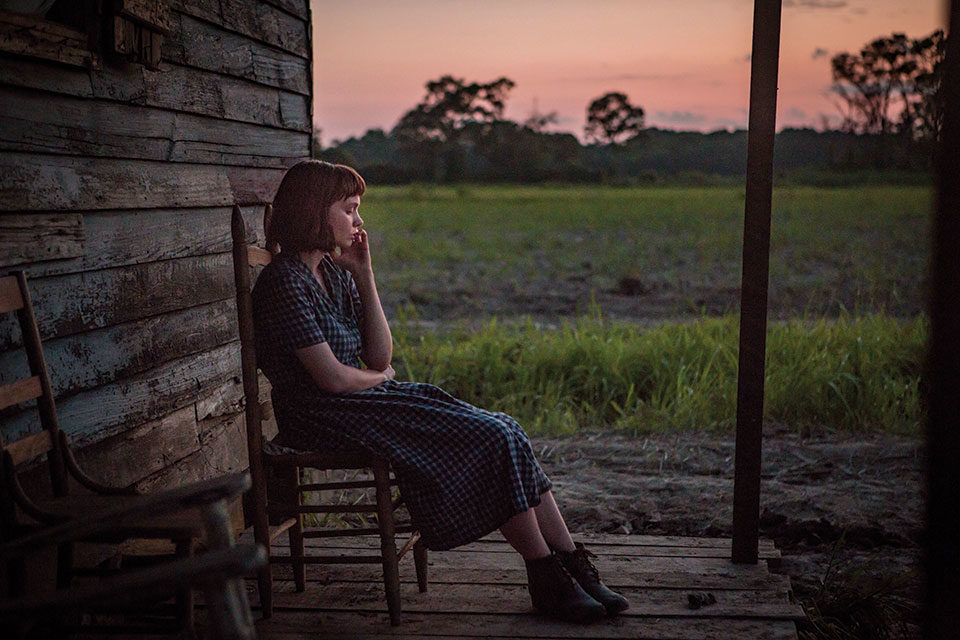
Mudbound’s nuanced commentary on American race relations felt particularly urgent when I saw it for the first time this January, at the Sundance Film Festival, two days after the still-surreal inauguration of President Donald Trump—an event that was being openly celebrated by a resurgent Ku Klux Klan, alongside sundry white nationalist organizations. Rees, of course, couldn’t have predicted this, but still intended for the film’s story to resonate in current day. “This film about 1944 is about today, just as a film set in 2044 is about today. For me, period [cinema] done well comments on the time in which it is made. What I’m trying to get across is that we often choose to bury our history, have amnesia as a country, not talk about race, and be done with it. But we can’t be done with something we’ve never talked about. People think that the story [of American racism] stops at slavery, or at the end of the Jim Crow laws, but people don’t talk about how into the 1960s and ’70s and beyond, black people were not fully integrated, and there was blatant race disparity, redlining, things that prohibit access from enfranchisement. These are the things that Hap was dealing with, literally, in the 1940s. Working in period—be it futuristic or past—gives us a critical distance to see ourselves, and to recognize that there can’t be an easy excuse. To say [of racists] ‘he’s a man of his time’ or ‘that was just the time.’ My point is that we are the times, we create the times, and when you look at what’s happening in our country, it’s like, this is us.”
I can’t say I’ve seen a film quite like the swirling, leaping, endlessly empathetic Mudbound, although its more sweeping qualities call to mind romantic wartime epics like Powell and Pressburger’s A Matter of Life and Death (1946) and Anthony Minghella’s The English Patient (1996). Its most intriguing forebear, however, seems to be Leo Hurwitz’s remarkable documentary Strange Victory (1948), which uses juddering, collagist editing to contrast American military triumphalism with the racism and anti-Semitism that dogged the postwar period. I don’t know whether Rees has seen the film (the comparison dawned on me after our chat), but Mudbound employs similarly jarring, impressionistic editing (and sound editing) to evoke psychic connections between characters in different spaces. “That was a choice, to play on the war at home/war abroad thing,” said Rees. “This comes, for example, where we intercut Ronsel’s tank battle with Hap falling off a ladder and breaking his leg. We intercut Jamie’s plane battle with a girl who has whooping cough. It really sharpened that whole idea. The editor is Mako Kamitsuna, who also edited Pariah, and it was good to have her back. We worked in the same way, even though we had more of a budget. Instead of working on a posh soundstage or a studio, we edited in upstate New York. We took a week in an artist’s loft with a computer, a couch, a floor lamp from Walmart. It was just us, with no producers in the room, and we could come to a cut that we love.”
Regarding other influences, Rees was more concerned with visual art than film, and tonal quality rather than mimicry. She cites the stark photography of Robert Frank, and the wooden sculptures of Mary Frank, Robert’s former wife, as visual guides. She also mentions the work of two black artists: Whitfield Lovell, known for his evocative drawings of African-American individuals from the first half of the 20th century on walls, paper, and wood; and the late, self-taught folk artist Mose Tolliver (known as Mose T), who began life as the son of a sharecropper and farm overseer before becoming known for his fantastical, colorful images painted on a variety of surfaces. Rees does reference one filmmaker in our conversation: the late Les Blank. “Blank has these documentaries about the South that don’t feel like films,” she said. “They are very observational, and there is a naturalism that he gets out of the bodies.” One can detect a similar naturalism in the performances Rees coaxes from her Mudbound cast. “The films he made on musicians in the South are interesting, because they’re not performing for him. He’s holding the camera, but they are in charge of the image. The landscapes and the people are holding equal time. They are very philosophical.”
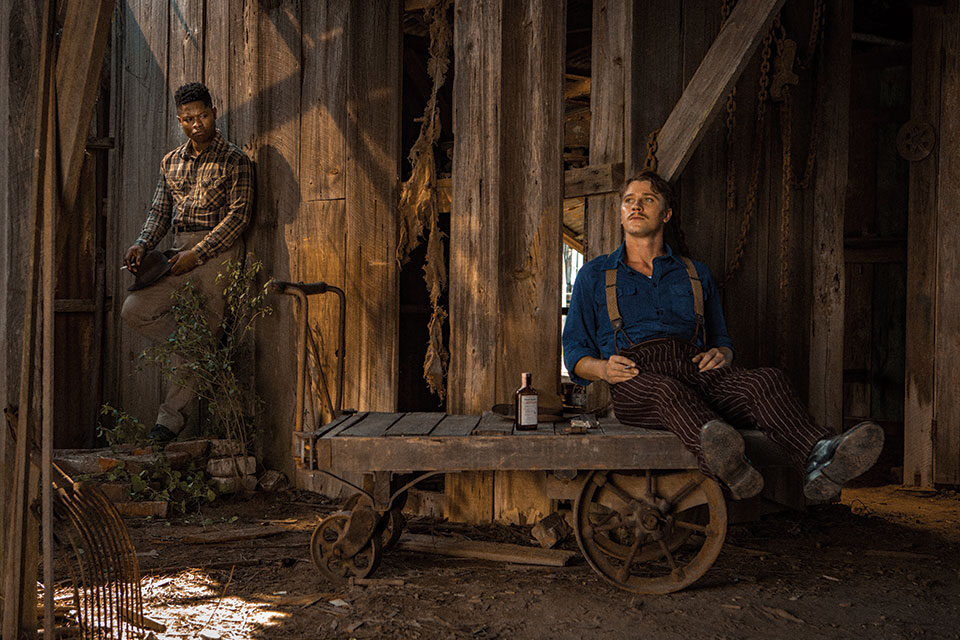
Rees herself is philosophical when I ask her about the role of Netflix in the film’s distribution. The company splashed out $12.5 million on the film at Sundance, making it the most expensive purchase of the festival. Mudbound is, quite clearly, an intensely cinematic spectacle, yet Netflix, a Web-based company, has come under the spotlight in recent times for their doubted commitment to giving its film properties wide theatrical platforms. “We were having the same argument five years ago about film vs. digital, and it’s not an argument anymore,” said Rees. “The material of the story trumped the medium, in a way. You can still shoot film, but there’s less strictness than there was. People were declaring that they would only screen film at film festivals and now they are screening DCPs. It feels like that same argument where ideas of purism are at the heart of it. But I think we’ll end up going back to the material and the craft. I think it will fall away and five years from now we’ll forget we ever had this argument.”
For Rees, the communal experience, rather than the means of distribution, is key. “I hope that people will still watch this in groups,” she said. “Of course every director wants theatrical initially, and I think people who want that will still go and see it. Netflix helped to keep Pariah alive this long and I think that accessibility starts to top the argument of venue—more people have seen Pariah online than in theaters. More people see it simultaneously in many countries. It’s a blend.”
But this careful director can’t help cast her own vision of the film’s spectators in her mind’s eye. “When people watch it, I hope they watch it without pause. The thing about the cinema is you can’t stop it, you can’t take a break, you can’t step away. I think that power comes from the continuity of the narrative, and I hope that is able to come through.” It may sound hyperbolic, but a pause is a rupture, and a film as beautiful, considered, and brutal as Mudbound needs its unbroken momentum to fly to its most soaring heights.
Closer Look: Mudbound screens in the 55th New York Film Festival and will open on November 17.
Ashley Clark is the senior programmer of cinema at BAM and a contributor to Film Comment, Vice, The Guardian, and Reverse Shot, among others. His first book, Facing Blackness: Media and Minstrelsy in Spike Lee’s Bamboozled (Critical Press), is available now.



